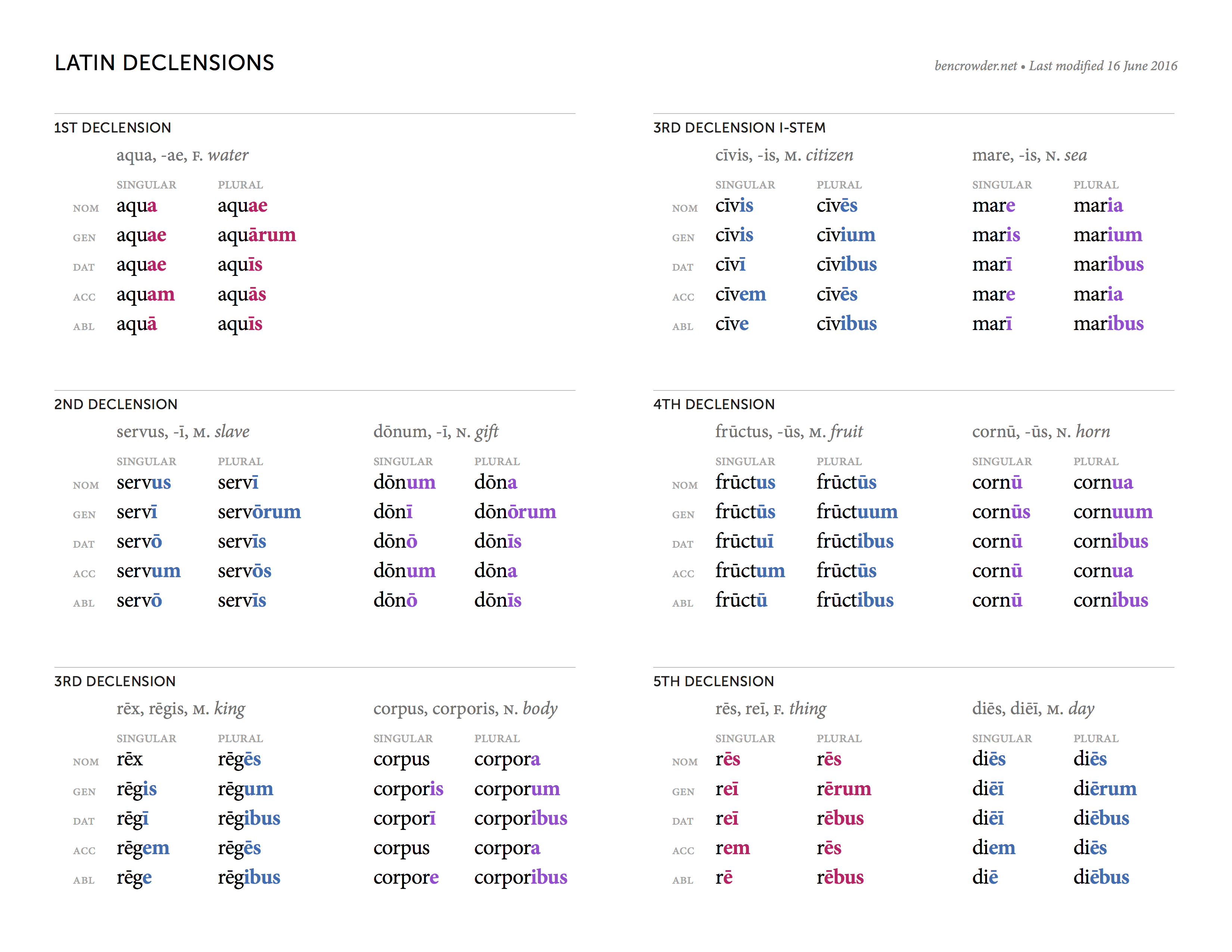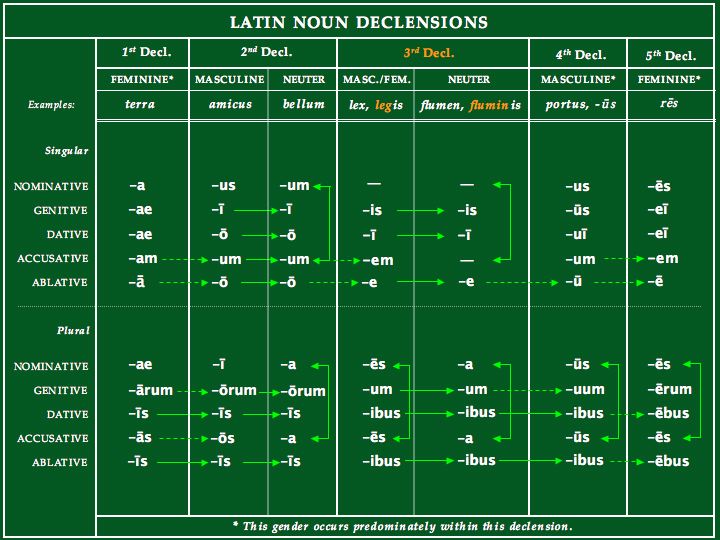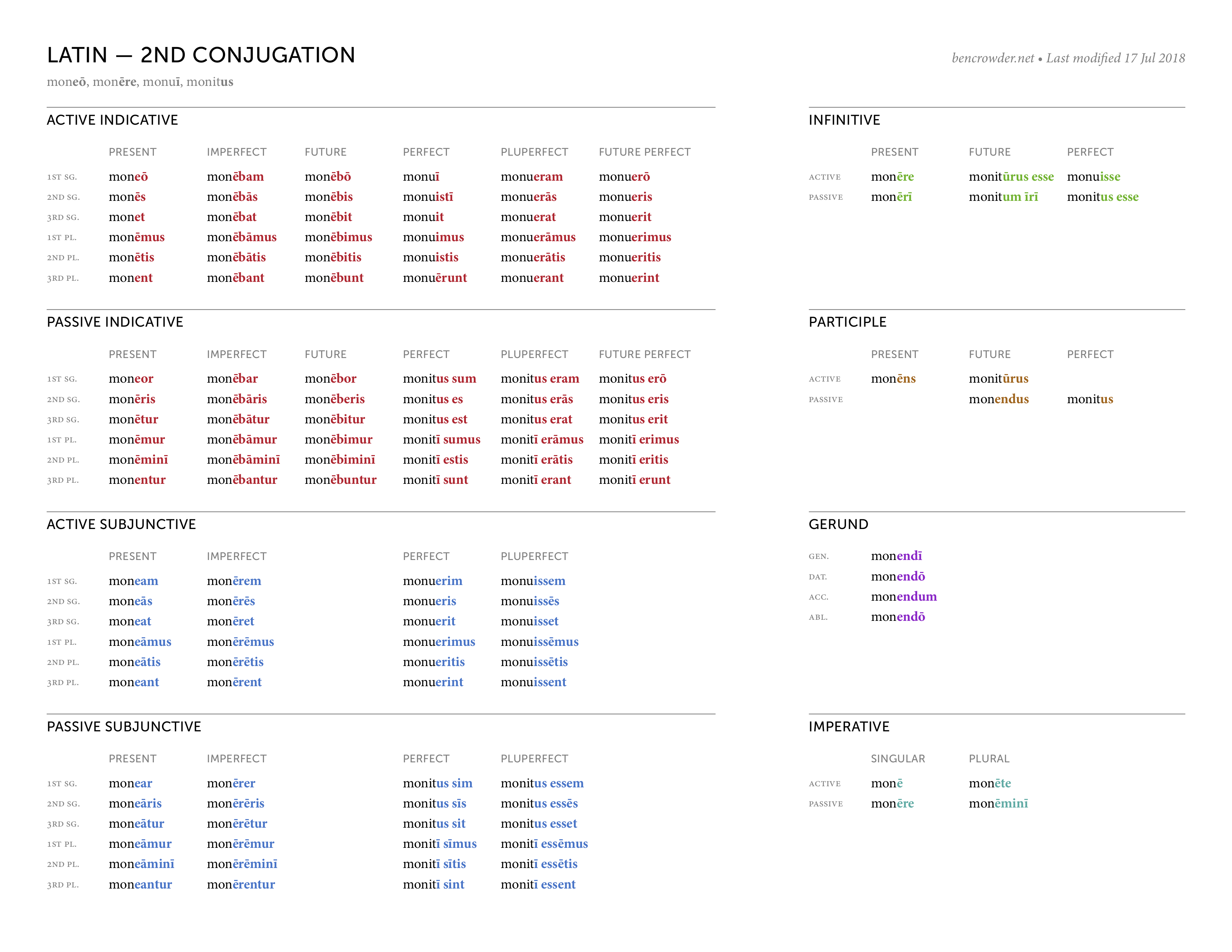
Latin-English dictionary website featuring grammar resources and study aids like flash cards and an easy-to-read grammar section.

Adjectives must agree with the nouns they modify in case, number, and gender. Thus, Latin adjectives must be declined as well. First- and second-declension adjectives are declined identically to nouns of the first and second declension.

In linguistics, declension is the changing of the form of a word to express it with a non-standard meaning, by way of some inflection, that is by marking the word with some change in pronounciation or by other information.The study of word declensions is made easier by use of the simple distinction of where words are “symbols” and any …
A verb is a word capable of declension and conjugation also. Squire Gregory carried on the declension, not without pride. Whence came the declension of their empire, but from the neglect of arms?
PARTICIPLES A participle is a form of a verb used as an adjective. The participle may be active or passive, but will always agree in number, case, and gender with the noun that it …
Declension came into English (via Middle French) in the first half of the 15th century, originating in the Latin verb declinare, meaning “to inflect” or “to turn aside.”The word seems to have whiled away its time in the narrow field of grammar until Shakespeare put a new sense of the word in his play Richard III in 1593: “A beauty-waning and distressed …


Latin is an old language that was used in Ancient Rome.Short Latin texts are found from about the 5th century BC, and longer ones from about the 3rd century BC.. Classical Latin was used in the 1st century BC, and was the official language of the Roman Empire.It was widely used in the Western part of the Mediterranean.The languages …
V E R B S N O U N S P R E P O S I T I O N S: V E R B S: Practice Latin Verb Tenses as J i g s a w P u z z le s: ESSE (“to be”) in the Present and Imperfect Tenses: ESSE (“to be”) in the Future and Perefect Tenses

DECLENSION OF NOUNS In English, the relationship between words in a sentence depends primarily on word order. The difference between the god desires the teen and the teen desires the god is immediately apparent to us. Latin does not depend on word order for basic meaning,
The supine is a Latin verbal noun. Since it is a noun it has a declension, but it only appears in the accusative and ablative singular. This depends on the conjugation to which the verb belongs. If you have a dictionary, the fourth principal part is usually the supine, but with a us ending


